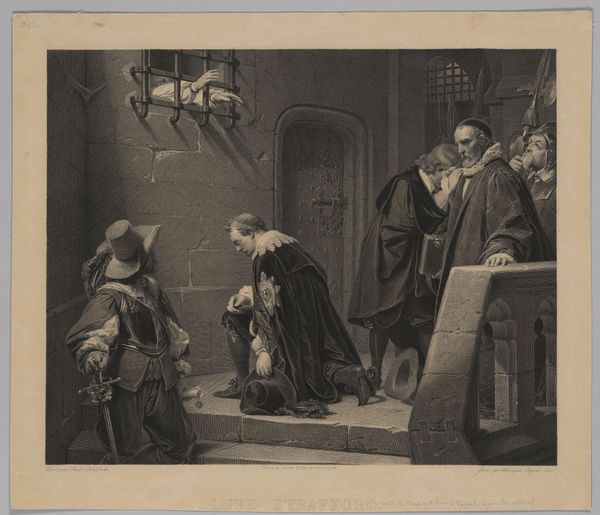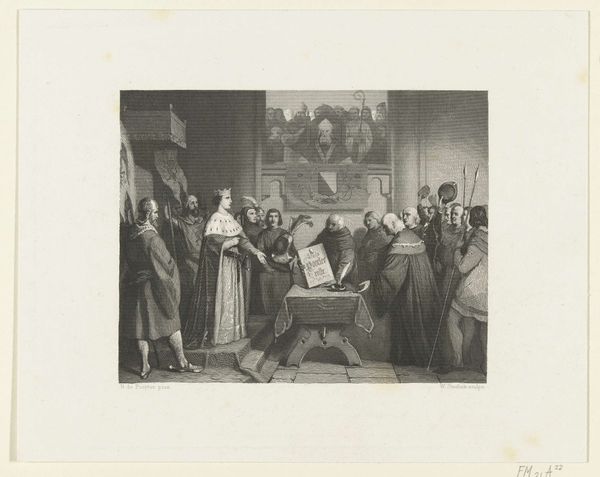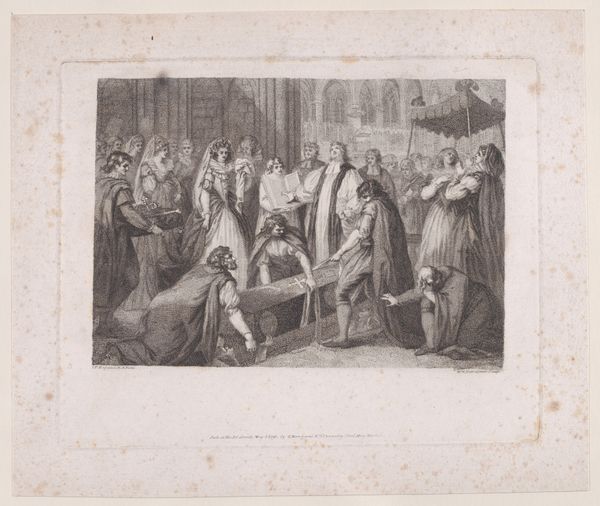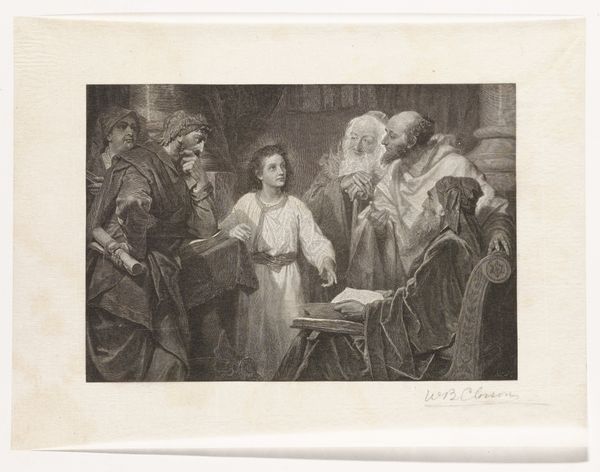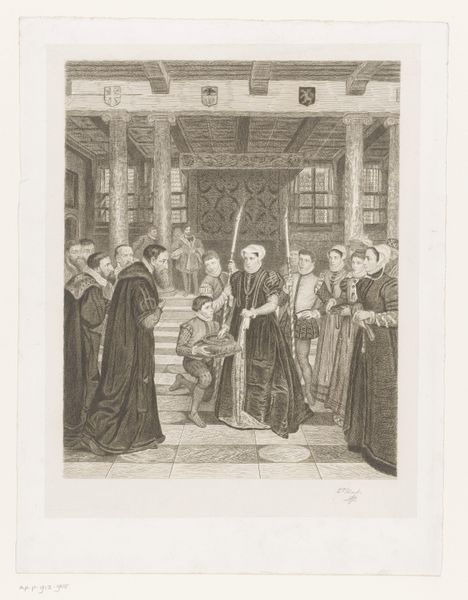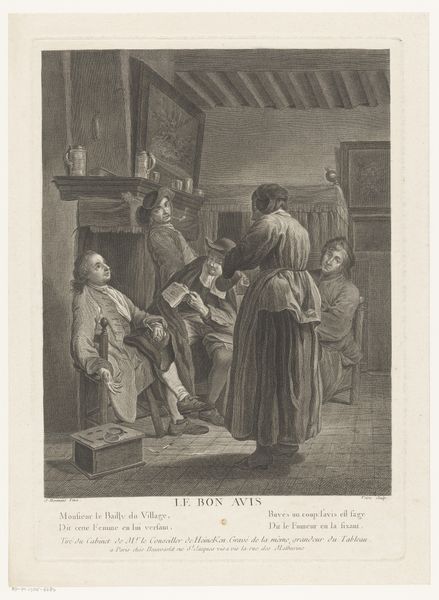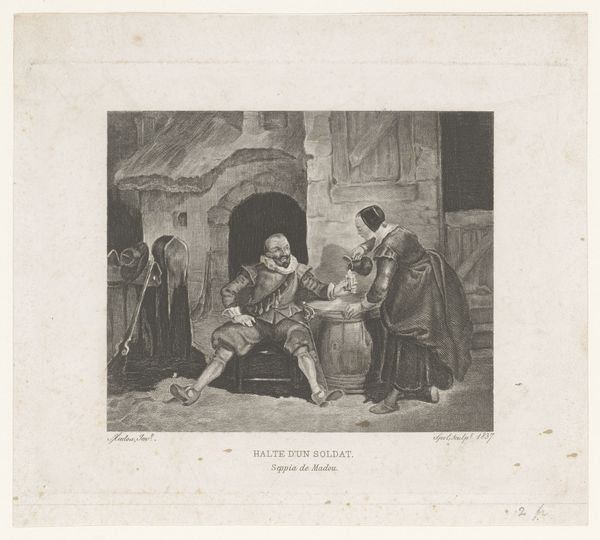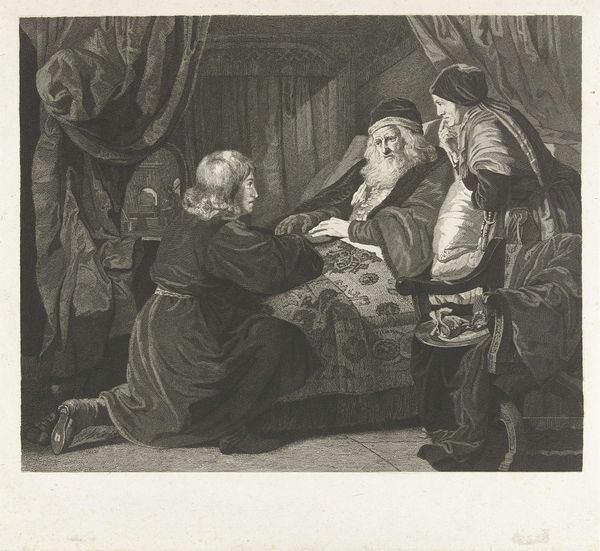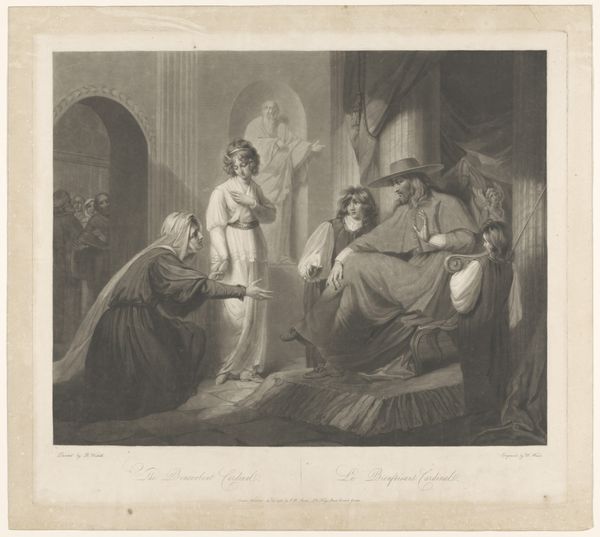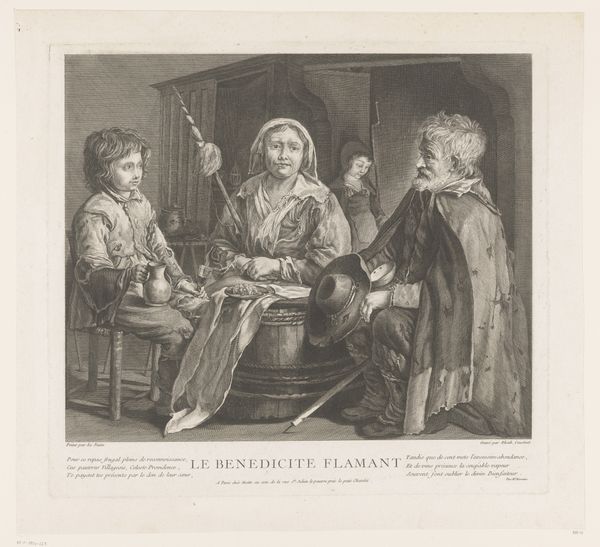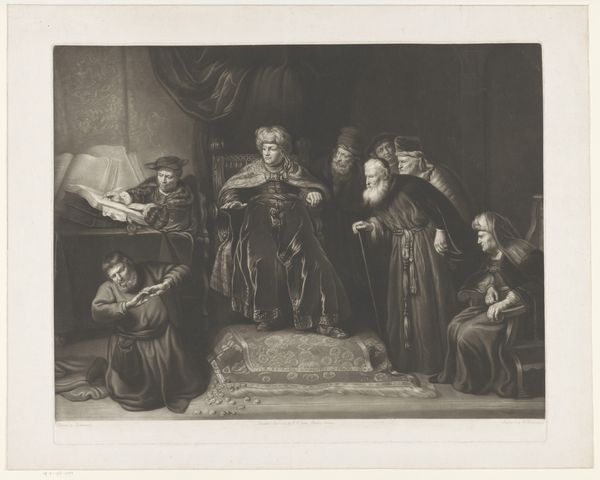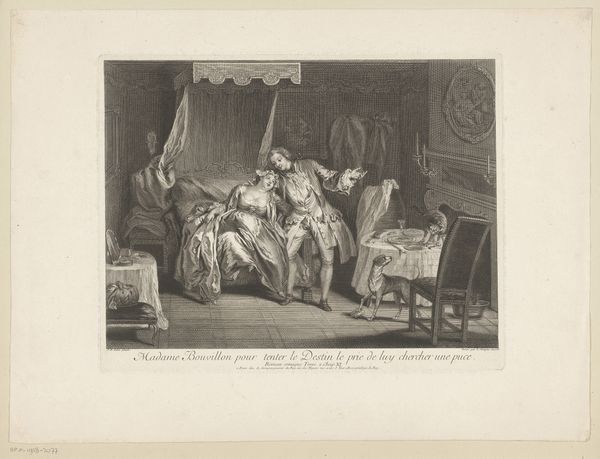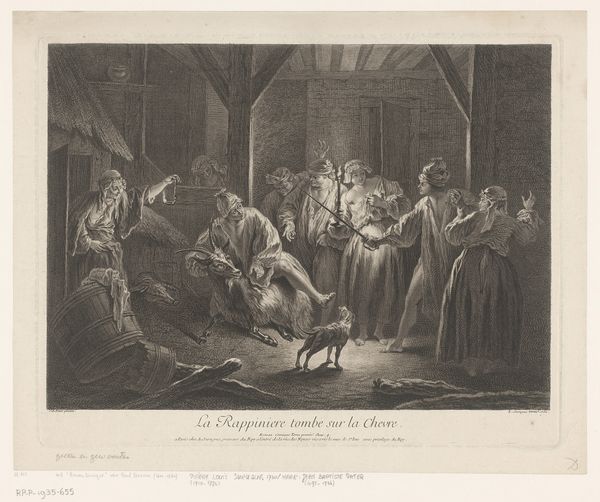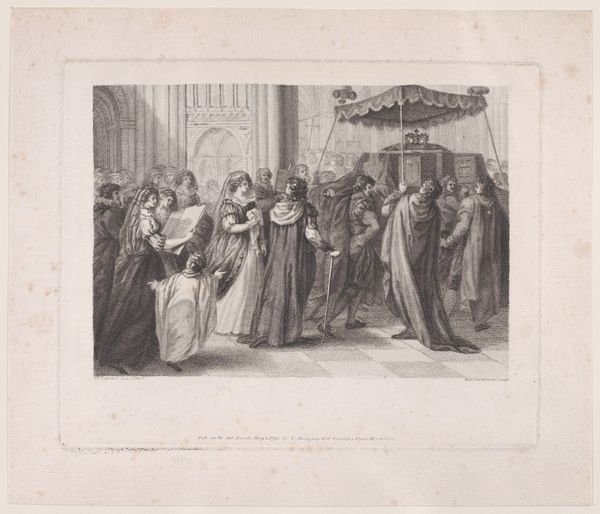
print, engraving
#
portrait
#
print photography
#
narrative-art
# print
#
archive photography
#
historical photography
#
romanticism
#
history-painting
#
engraving
Dimensions: height 372 mm, width 401 mm, height 290 mm, width 358 mm
Copyright: Rijks Museum: Open Domain
Editor: This is "Thomas Wentworth Led to His Execution," an engraving made in 1840 by Louis Pierre Henriquel-Dupont. The dramatic lighting really draws my eye. What can you tell me about this piece? Curator: Well, let’s think about this engraving as a product of its time, a commodity circulating within a specific social context. The artist, Henriquel-Dupont, meticulously reproduces an historical scene using industrial printing techniques. Consider the labor involved, the material used: the metal plate, the ink, the paper. Editor: So, it’s not just about the image, but also the physical process of making it? Curator: Exactly! And how that process reflects the changing relationship between art, production, and consumption. Engravings like these were widely distributed, shaping public opinion and historical narratives. Who was able to buy such artwork, and what political or social agenda could they push through it? Editor: It's interesting to think of it less as a unique artwork and more as a widely available product shaped by industrial means. Was this a commentary on wealth and labor, in that regard? Curator: In a way, yes. By meticulously recreating a scene of aristocratic execution for mass consumption, the artist participates in both celebrating and dismantling traditional power structures. Does that give you any new insights? Editor: Absolutely. I hadn't considered the social implications of reproducing and distributing historical scenes like this on a mass scale. It makes you rethink the original intent. Curator: Indeed, seeing art as more than just an image lets you see how its social power stems from its materials, the labour involved and how it was shared amongst different social groups.
Comments
No comments
Be the first to comment and join the conversation on the ultimate creative platform.
